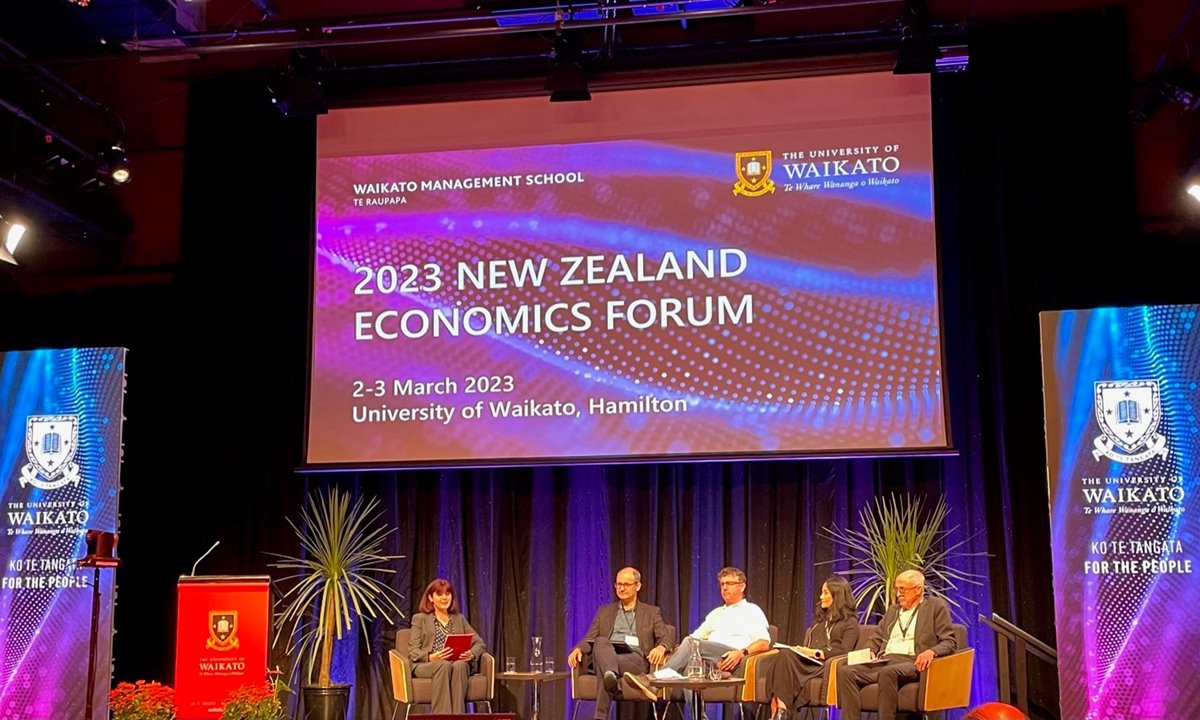As the aptly named New Zealand Economics Forum (NZEF) noted, in the wake of a global pandemic and in the midst of a cost-of-living crisis, Aotearoa is navigating heavy seas.
The forum, held at the University of Waikato last week, brought together economists, business leaders and public sector officials, and zeroed in on how we can address these major challenges being faced by our country today.
The COVID-19 response, immigration, education, infrastructure and housing featured on day one of the two-day forum’s agenda, with conversations about the importance of long-term investment looming large, particularly in the wake of Cyclone Gabrielle.
Transport networks, housing, hospitals – the extreme weather events of this summer have highlighted weaknesses in parts of our physical infrastructure, and parts which, if they are rebuilt, require their resilience be considered. Resilience in the face of climate change and our growing population, for example.
What stood out to the Te Waka team as critical, was the importance of including human capital in these conversations about long-term investment and resilience. Our workforce, education and training system, population size, demographics and wellbeing must all factor in order for Aotearoa to prosper long term.
As we plan for where our roads and homes should be in the future, we also need to plan for the size of our population and the skills and capabilities that population’s workforce needs to have.
The Te Waka work programme sees us gather regional insight and intelligence in this area, much of which we make available, and invite participation in, in the hope that it will help to inform these discussions.
Our Workforce Action Plan for example, is founded on enabling the development of a diverse, thriving and adaptable workforce. We host regional workforce development leads to discuss common issues and key focus areas, and to identify opportunities to collaborate and share. In the freight and logistics sector, we’re helping to connect the dots by bringing together industry, education and the public sector.
Te Waka recognises the need to foster a skilled and motivated workforce, beginning with seamless secondary school transitions and easily accessible pathways for newcomers.
A skilled and motivated workforce has its roots in the classroom, and as the NZEF made clear, conversations about our education system – the development of literacy, numeracy, STEAM and problem-solving skills, connections to employers and education quality – are ongoing, at national, regional and local levels.
The education sector is one that has been beset by worker shortages in recent years, with border closures among the contributing factors.
Our immigration settings must be agile and fit for purpose. We welcomed the recent announcement of a new visa to enable the availability of specialist migrant workers to help with recovery efforts after the North Island’s recent weather events – in the Waikato, this will be particularly helpful for the Coromandel, Port Waikato and Raglan communities.
At the same time as skills shortages are addressed, we need to ensure that migrants to Aotearoa are welcomed appropriately and enabled to access support networks.
The team left the NZEF feeling energised by two days’ worth of thought-provoking and timely discussion. Our 2023 work programme will see region-specific insights gathered, shared and discussed in order to drive economic performance across the Waikato.
Keep an eye on our Events page and subscribe to our database to be invited to participate.



.jpg?sfvrsn=14164ce5_1&mode=crop&width=770&height=462&format=jpeg&quality=85)
.jpg?sfvrsn=414c0434_1&mode=crop&width=770&height=462&format=jpeg&quality=85)
.png?sfvrsn=16db4cf2_1&mode=crop&width=770&height=462&format=jpeg&quality=85)